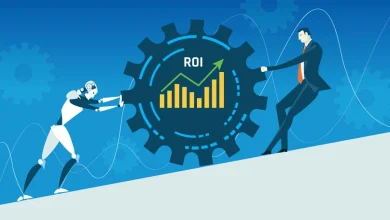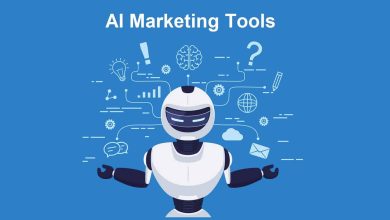When it comes to running a successful business, perhaps one of the most important aspects of that is sales forecasting. It guides you to plan ahead, manage resources, and evaluate development towards business objectives. Traditional sales forecasting can be tedious, subjective, and unreliable, though. Here is where AI-based CRM systems can be helpful. They provide a smart data-based predictive strategy that can make accuracy and efficiency leapfrog. Now, it is time to explore why AI-enabled CRM tools are transforming the art of sales forecasting. What then are the reasons why your business should think about incorporating AI into its CRM solutions? Let us answer these questions together.
Why Does Sales Forecasting Matter?
Good sales forecasts provide the business with a competitive advantage. It enables them to respond more effectively to changes in demand, utilize the available resources effectively, and establish feasible objectives. On the one hand, false predictions might result in resource waste. They are losing opportunities or even have to cope with a monetary crisis.
Traditional Approach to Sales Forecasting
Traditionally, sales forecasting has been done manually. It relied on historical data, gut feelings, and input from sales teams. Sales managers typically analyze past sales performance, look at market trends, and make predictions based on their experience. This worked to a degree. However, it often lacked precision and missed out on the nuances of data that could provide a more accurate picture.
For example, a sales manager might rely on spreadsheets to track leads, conversions, and sales cycles. But this does not account for shifting customer behaviors, external factors, or the large amounts of data generated by digital interactions. As a result, forecasts can be outdated, inconsistent, and prone to error.
How AI-Powered CRM Systems Transform Sales Forecasting
An AI-powered CRM system takes sales forecasting to the next level. It automates the process and incorporates a wide range of data sources. Here is how that works.
1. Data Integration and Real-Time Analysis
Among the most important features of the AI-based CRMs is the fact that they allow combining and analyzing various sources of information in real-time. Conventional procedures are usually based on the sales team’s data input. But AI-guided CRMs access data points across multiple touchpoints. They may be website behavior, customer support interactions, social media, and email interactions. This overall perspective will enable a better comprehension of customer experience.
2. Predictive Analytics and Machine Learning
AI-powered CRMs employ predictive analytics and machine learning algorithms to forecast future sales based on patterns from historical data. These algorithms learn from past interactions, customer behavior, and sales cycles to make predictions about future trends.
Machine learning models are able to interpret hundreds of variables. Within seconds, the quality of leads, duration of sales cycle, seasonality, customer demographics, and other external factors can be processed. These models get better at predicting the results the longer they run, since they continue learning more and more information about what is causing sales success.
3. Automated Lead Scoring and Opportunity Identification
AI can automate lead scoring. This involves evaluating how likely a prospect is to convert into a customer based on specific criteria. In a traditional system, salespeople might manually assign scores to leads based on their perceived likelihood to buy. However, this process can be subjective and inconsistent.
AI-powered CRMs can be a smart solution. They automatically score leads based on a combination of historical data, interactions, and behavioral patterns. The system can also identify high-value opportunities that might have been overlooked by human sales reps. This means your forecasts will be based on more reliable data.
4. Real-Time Forecast Adjustments
A disadvantage of the traditional sales forecasting is that it is usually static. After a forecast has been developed, it is difficult to make the adjustments unless the changes are major. Conversely, AI-powered CRMs provide dynamic forecasting. Therefore, whatever you predict can automatically realign as new information arrives.
So, in case of, say, an unexpected increase in qualified leads, thanks to some marketing initiative, the AI system will correct its sales forecast towards that direction. Such adaptability enables companies to remain nimble and make proactive decisions as opposed to using obsolete and/or unreliable forecasts.
5. Identifying Sales Trends and Patterns
AI is also excellent when it comes to identifying patterns that can be lost by the human eye. Through the sales data collected over time, AI-driven CRMs can determine the emerging trends. Seasonality, changes in customer preferences, or the influence of certain campaigns on the level of sales are easy to notice. To illustrate, suppose a specific product is always more successful in specific geographic areas or specific months, the AI will identify the tendencies and consider using these patterns in final sales predictions. This gives businesses a chance to become more sensitive.
Benefits of AI-Powered Sales Forecasting
There are many good reasons to use AI for sales forecasting. But what benefits do you get in the end?
- Improved accuracy — AI uses data-driven insights to generate more accurate sales forecasts. AI analyzes vast amounts of data and identifies patterns. This way, it reduces the reliance on human intuition and guesswork.
- Time savings — AI automates much of the manual work involved in sales forecasting. Instead of spending hours crunching numbers and analyzing spreadsheets, your team can focus on closing deals and building relationships with customers.
- Better decision making — With accurate sales forecasts, businesses can make better decisions about inventory management, resource allocation, and marketing strategies. This allows businesses to optimize their operations and avoid overstocking or understocking products.
- Increased sales performance — AI-powered CRMs help businesses identify opportunities and optimize their sales processes. Whether it is identifying the best times to reach out to leads or prioritizing high-conversion prospects, AI helps businesses perform
Final Say
AI-powered CRM systems are revolutionizing sales forecasting. They offer data-driven, accurate predictions that help businesses stay ahead of the curve. Thus, businesses can make smarter decisions, improve their sales performance, and allocate resources more effectively. With the ability to analyze vast amounts of data and spot trends, AI makes sales forecasting more reliable and efficient than ever before. If you are looking to optimize your sales process and make better business decisions, integrating AI into your CRM system is a step in the right direction.





